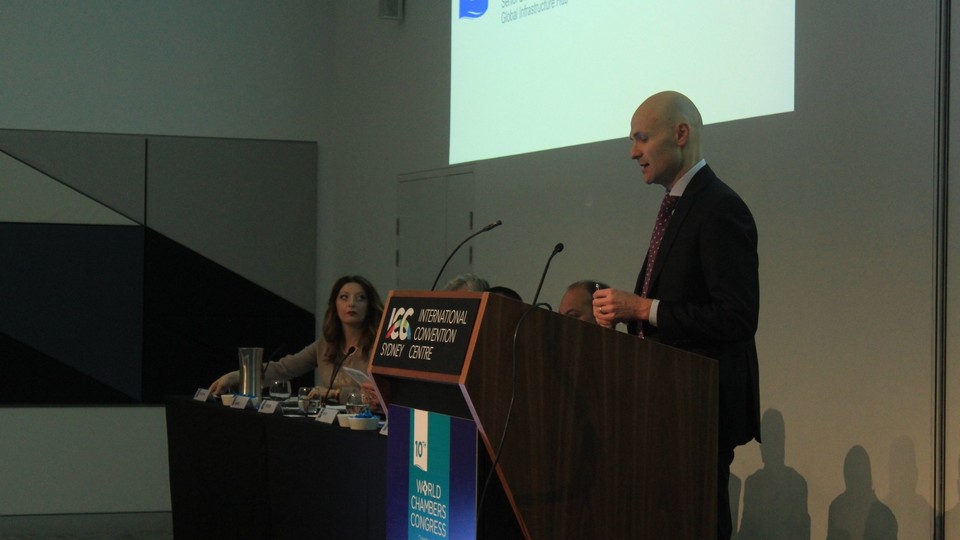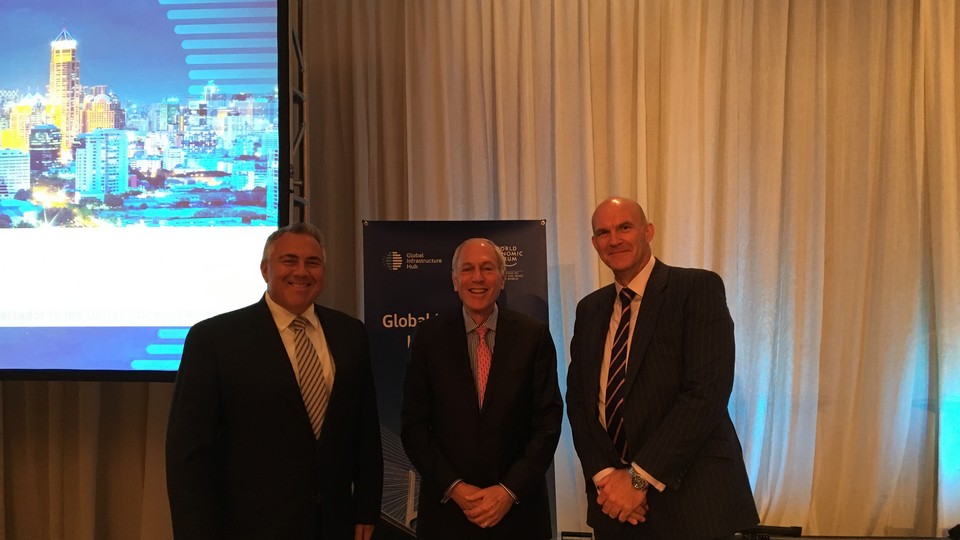299 results found
GI Hub held the third of its 2017 Regional PPP Risk Allocation Workshops in Bogotá, Colombia, on 9 November 2017, with various public sector representatives from across Central and South America as well as multilateral organisations operating in the region.
The Global Infrastructure Hub (GI Hub) has now signed a consultancy contract for the development of a reference tool to address inclusion in large infrastructure projects.
Infrastructure is crucial to Africa’s growth prospects. It’s also hard to get right, a reality acknowledged by delegates from around the continent and further afield who recently gathered in Cape Town, South Africa, for Africa’s First Roundtable on Infrastructure Governance.
A new global survey of major international institutional investors has found strong investor demand for infrastructure, including record levels of interest in emerging market infrastructure with 37.5% of all investors now active in these growing markets.
Africa’s first roundtable on infrastructure governance is taking place in Cape Town this week. Chris Heathcote, CEO of GI Hub, which is participating, shares his views on the opportunities that infrastructure development offers African countries and some of the obstacles to the success of such projects.
Government, private sector, multilaterals, and development partners gather in Cape Town as this topic takes center stage globally
Infrastructure Financing Trends in Africa – 2017 is the Infrastructure Consortium for Africa’s (ICA’s) annual report on how financial resources are being mobilised to facilitate the development of the continent’s transport, water and sanitation, energy and ICT sectors.
Mark Moseley, the GI Hub Chief Operating Officer, discussing the topic of infrastructure organization and financing
At their recent Annual Meetings in Washington, World Bank and International Monetary Fund leaders discussed some key global issues; namely the global economic outlook and how to feed a growing global population.
The second International Forum of Public-Private Partnerships was held in Salvador, Bahia, Brazil between 18th - 20th October, attended by GI Hub staff Daniel Fedson, Director, Cleyton Barros, Principal Policy Advisor and Jack Handford, Principal Advisor.
The Global Infrastructure Hub’s Breakfast, in partnership with the World Economic Forum, took place in Washington D.C. yesterday. Infrastructure leaders and professionals
The global infrastructure investment gap has been estimated at $15 trillion in the latest report from GI Hub, Global Infrastructure Outlook. Across the 50 countries that make up the



 PPP Risk Allocation Tool
PPP Risk Allocation Tool


















